Idle computers have hope; just run them and earn tokens.
Recently, the launch of Grass on Binance has sparked a wave of excitement, and the Solana DePin leader IO has also seen a significant rebound. Research institution Messari estimates that the total TAM of the DePIN sector could exceed $2.2 trillion, reaching $3.5 trillion by 2028. Major institutions are making moves, leveraging AI narratives as various DePIN projects gradually grow.
Besides Grass, which other DePIN projects are worth paying attention to, and how can one participate early? This article will provide a tiered overview of DePIN projects that can be run passively for zero investment, allowing you to obtain early airdrops.
Five-Star Attention
DAWN
DAWN is a decentralized autonomous wireless network project developed by the Andrena team. The Andrena project began research as early as 2014, focusing primarily on mobile data sharing in Web2. Its founder, Chatterjee, hails from Princeton University, while another member, Pramod Viswanath, has a stronger academic background compared to Chatterjee's legendary entrepreneurial experience. Pramod Viswanath is a professor at Princeton University and also a core member of another popular crypto AI project, Sentient.
DAWN primarily breaks the traditional model where internet bandwidth is managed and allocated by large Internet Service Providers (ISPs), leaving consumers without a say in its allocation or pricing. It transforms bandwidth into a commodity that every user can manage, use, or sell. DAWN has currently raised $18 million in funding, led by Dragonfly, with participation from CMT Digital, Castle Island Ventures, Wintermute Ventures, 6th Man Ventures, and ParaFi. Solana has also promoted it on X. According to the official white paper, the proportion of tokens allocated for user airdrops is approximately 32%, with software participants accounting for 7%.
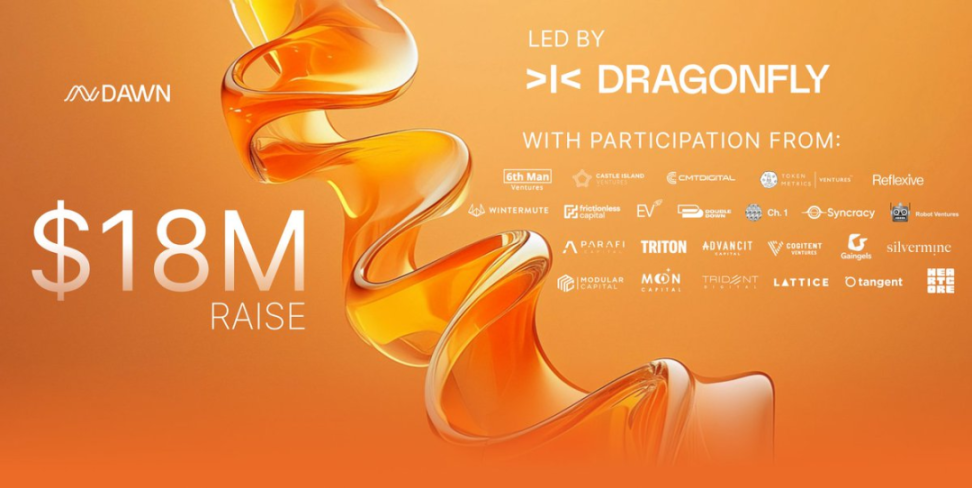
DAWN operates through a combination of software and hardware, and the project is still in its early stages, with RAS hardware not yet widespread. Currently, participation is very simple; by downloading the browser extension (https://www.dawninternet.com/blog-posts/dawn-validator-extension-rewards-system), you can act as a validation node to earn early points. After completing social tasks, you can also receive a reward of 15,000 points.
Gradient Network
Gradient Network is an open layer for edge computing on Solana, aimed at making computing inclusive, accessible, and affordable for everyone. Like DAWN, it belongs to the IP mining category. It has already secured investments from Multicoin Capital, Pantera Capital, and Sequoia Capital. The initial product, GradientSentry, has been launched and is currently in public beta testing.
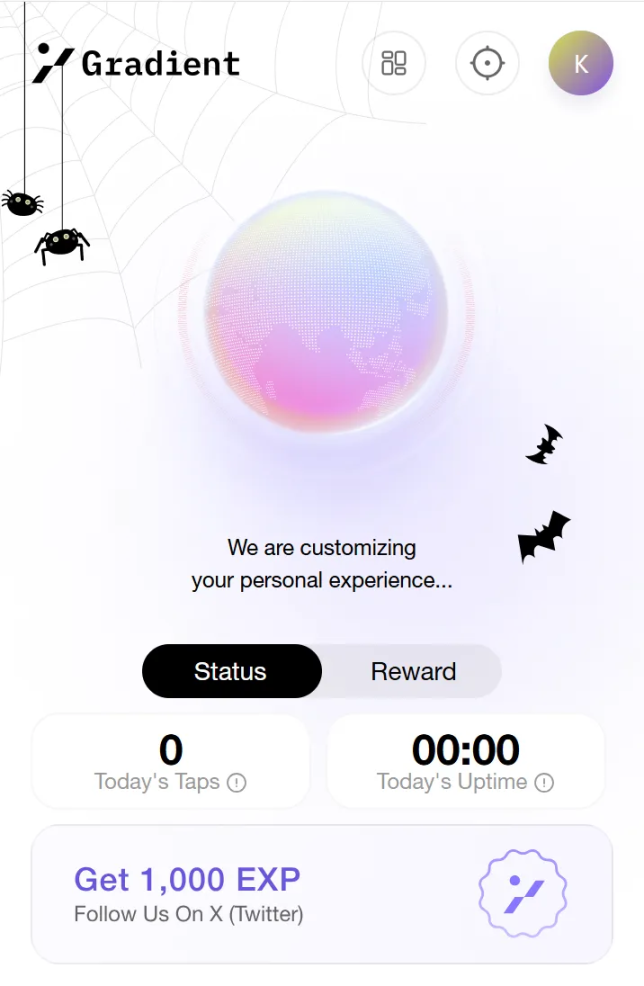
The registration process is similar to DAWN; you can enter your email or log in directly with Google. By downloading the plugin and running it, you can automatically earn points, and you can also increase your points by inviting friends.
Rivalz Network
Rivalz Network is an AI-driven DePin RollApp, the first player-to-AI network built on Dymension and supported by Celestia Labs. Rivalz Network is primarily used for personal data sources, providing verifiable personal, credential, and behavioral data sources, embedded with privacy and intellectual property.
Currently, the project has raised $9 million, with major investors including Delphi Ventures, D1 Ventures, Gate.io, Magnus Capital, and Cogitent Ventures; other supporters include DWF Labs, Mask, and GSR.
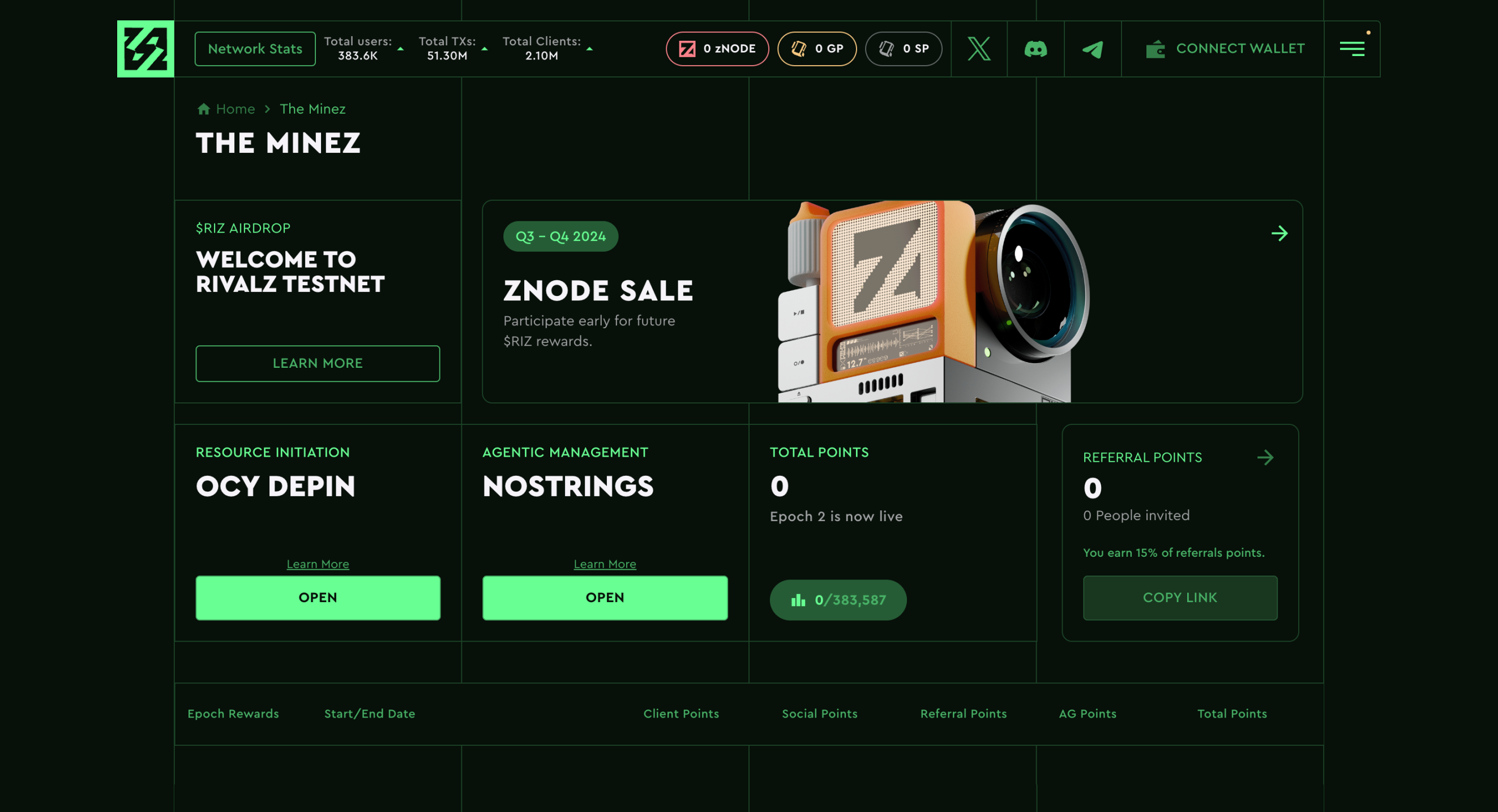
Rivalz Network currently supports mining on Windows, MAC, and Linux clients. You can earn RIZ tokens through social tasks, and purchasing node airdrop shares will yield more, accounting for about 25% of the total token issuance. The official minimum configuration requirements are: 8 GB RAM, 4-core CPU (2.2 GHz), 50GB SSD, and 10Mbps internet speed.
Nodepay
Nodepay is an AI infrastructure project that serves as a decentralized AI training network. Nodepay can provide decentralized bandwidth network infrastructure for AI training. By connecting to the Nodepay network, users will be able to sell unused internet bandwidth to AI companies, enabling efficient transmission of public training data, labels, model sharing, and remote distributed training.
Nodepay completed a round of financing in October this year, with the amount undisclosed. Investors include Animoca Brands, Jump Crypto, Elevate Ventures, OKX Blockdream, Mirana Ventures, and NGC Ventures. On November 12, Nodepay announced an airdrop for users holding the "Proof of Humanhood" badge. Recently, Nodepay's mobile app has performed well in app stores, showing high activity and entering the top 200.
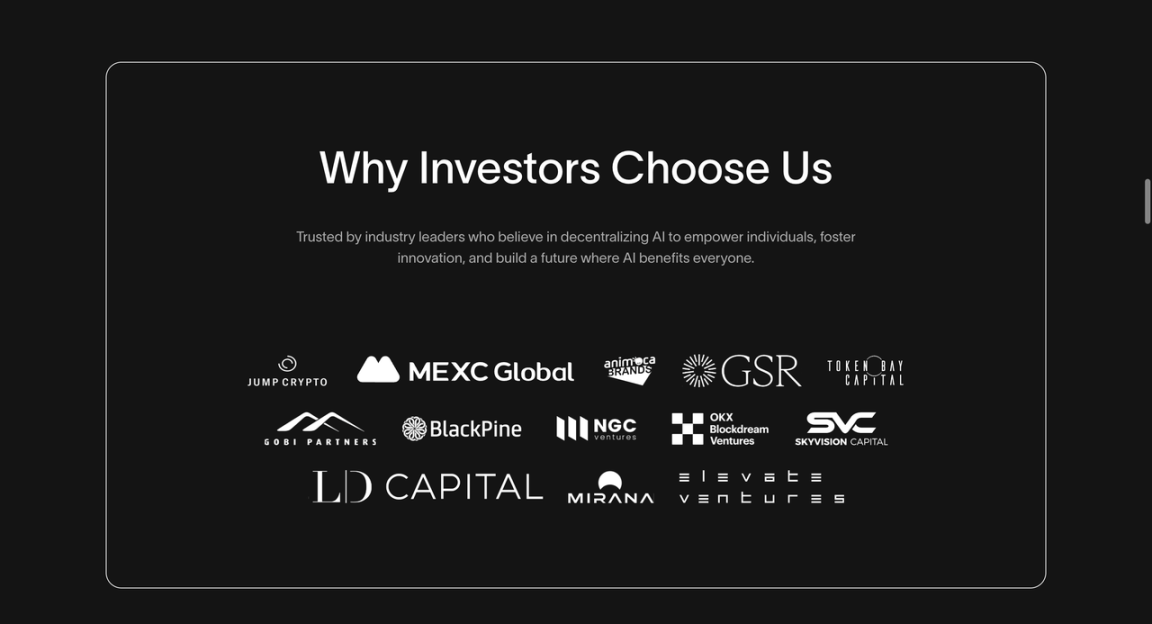
Participation methods are similar to the aforementioned projects; you can also download the plugin and run it to earn points.
Nexus Network
Nexus Network is a massively parallel proof mining network, belonging to a decentralized cloud computing network. It is a world-class instantiation of Nexus zkVM, designed to operate at a speed of one trillion CPU cycles per second. Nexus zkVM (Zero-Knowledge Virtual Machine) is currently in phase 1.0, a modular, scalable, open-source, highly parallelized, verification-optimized, contributor-friendly zkVM written in Rust, focusing on high performance and security.
Nexus has completed two rounds of financing, totaling $27.2 million. In June of this year, Nexus completed a $25 million Series A round, led by Pantera and LightSpeed, with participation from Dragonfly Capital, Faction Ventures, and Blockchain Builders Fund.
Currently, the initial Beta version of Nexus Network has been launched, which is a distributed validator network based on a zero-knowledge virtual machine, accessible to anyone. Nexus aims to unlock a verifiable internet by uniting computers worldwide to form a single supercomputer.
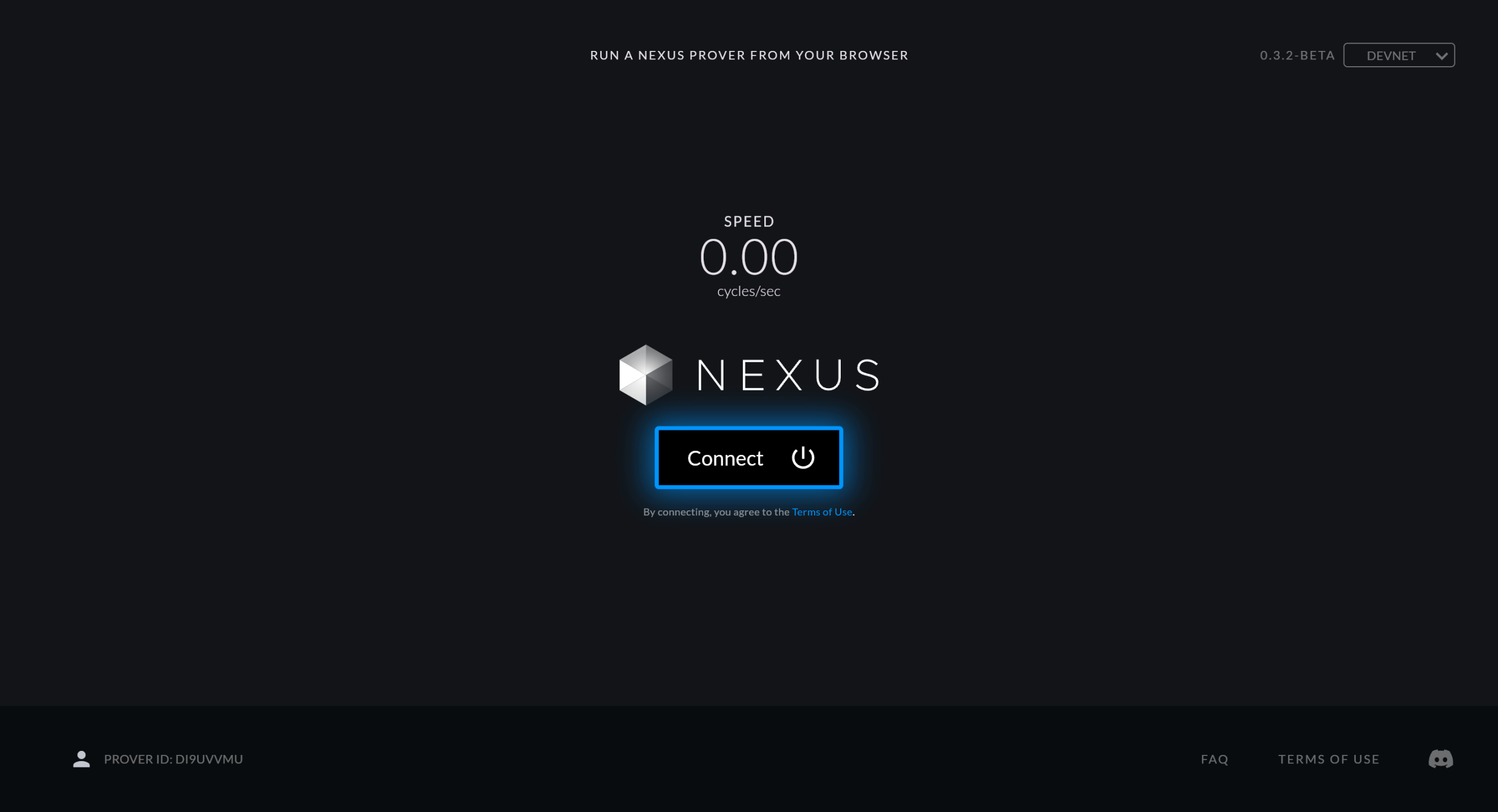
By entering its Beta test network and clicking Connect, you can participate. It is important to note that wallets have not yet been bound, and clearing browser cache may result in points being reset to zero.
Other Highlights
Network3
Network3 is a decentralized AI infrastructure that allows users to provide inference, fine-tuning, and training services for edge AI models by sharing bandwidth, computing power, and datasets, thus earning token incentives. Network3 currently supports mining on MAC, Windows, Android, iOS, and Linux clients.
It has completed $5.5 million in financing, with participation from Waterdrop Capital, IoTex, and others. The first round of mining machine pre-sales began in August, with the first batch of mining machines expected to break even in about 120 days.
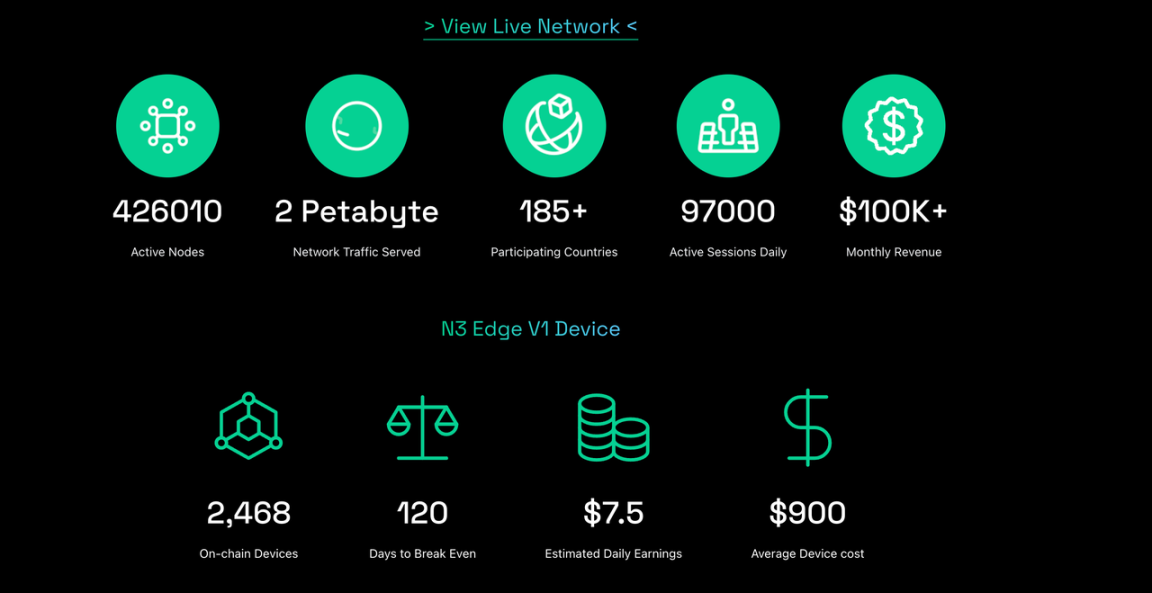
Uplink
Uplink is a decentralized physical infrastructure network that primarily provides decentralized network connections, aiming to create better distributed and user-operated infrastructure. Users can become providers and install hardware compatible with uplink for their communities or business locations, profiting directly from their usage. Its business model is similar to DAWN. It has already raised $10 million, led by Framework, with participation from Blockchange, Outlier, NxGen, Stratos, and others. Additionally, the project has previously collaborated with Ericsson, Deutsche Telekom, and E.ON. The mining client has not yet been launched, and points can only be earned by completing social tasks.
BlockMesh Network
BlockMesh is a decentralized bandwidth network project. It allows users to tokenize excess bandwidth, providing opportunities for passive profit and participation in the AI data layer, online privacy, open-source, and blockchain industries. The project also won first place in the DePIN track at a hackathon and has partnered with the exchange BackPack.
PinGo
PinGo is an AI and DePIN project on the TON network, aimed at solving the fragmentation and idleness of idle computing resources, providing a computational foundation for building AI models. PinGo was originally Cpin, a Web2 company with nearly 100,000 devices, and in the future, these devices will be integrated into its own DePin network. As one of the few DePIN projects in the TON ecosystem, it completed a seed round of financing in October, with participation from CGV, CatcherVC, T-Fund, K24, LandScape, and others. Currently, it only supports Android and Linux systems.
Oasis AI
Oasis AI is an AI inference project, a GPU computing power sharing mining project aimed at meeting the huge demand for open-source model inference. Oasis connects AI model users and computing resource providers through a browser extension. Users can access and run open-source AI models for free, such as chat assistants, image generators, and speech-to-text applications. At the same time, computing resource providers can earn tokens by sharing GPU or CPU resources. It currently supports Windows, MAC, and Linux systems, allowing users to earn OAI tokens passively.
Functor Network
Functor Network belongs to the autonomous layer of AI agents. Functor Network can automatically execute complex and data-intensive tasks, aiming to establish a world securely assisted by AI agents. The team members have strong technical capabilities, and the CEO has won 8 hackathon awards and is one of the founding members of H.E.R DAO. The project is still in its early stages, and users can mine by downloading the plugin and running it, receiving 200 FUNC upon registration.
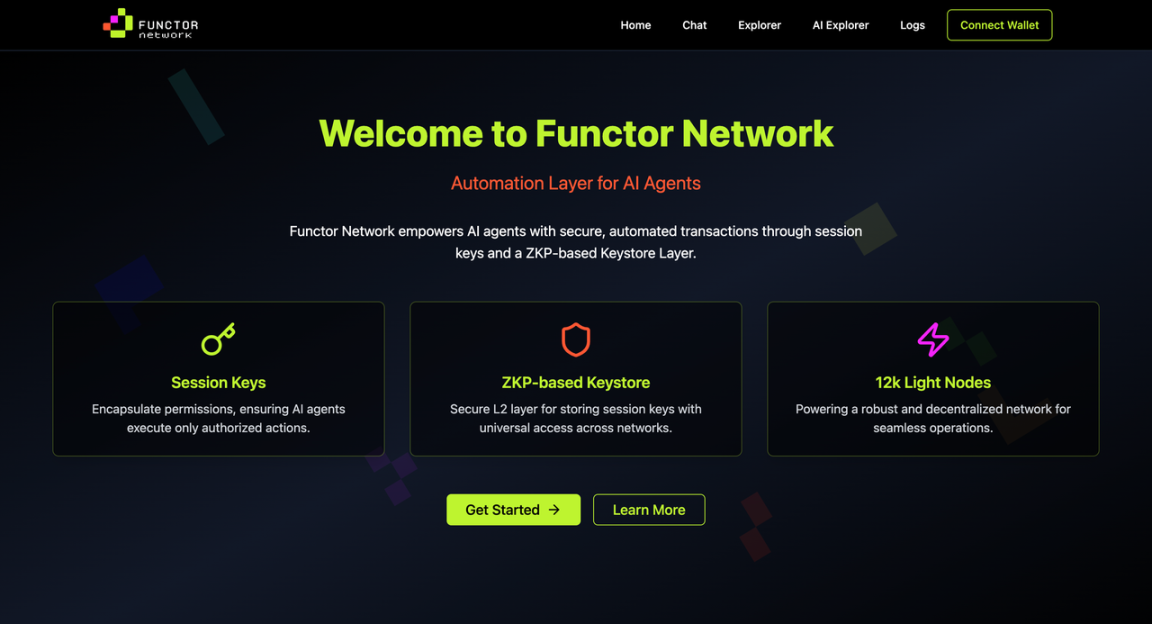
Teneo
Teneo is a DePIN IP mining project. It seems to originate from the same team as the previous Eloop One project. The team members are mainly from Europe, and the network operates in Vienna, Austria, with unclear investment and financing backgrounds. Users can receive 2,500 points upon registration and can mine by downloading the plugin.
免责声明:本文章仅代表作者个人观点,不代表本平台的立场和观点。本文章仅供信息分享,不构成对任何人的任何投资建议。用户与作者之间的任何争议,与本平台无关。如网页中刊载的文章或图片涉及侵权,请提供相关的权利证明和身份证明发送邮件到support@aicoin.com,本平台相关工作人员将会进行核查。



